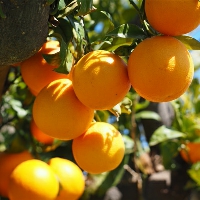There is no such thing as a retest in the CPA exam. The CPA examination is divided into professional stage and comprehensive stage. The professional stage has six subjects, namely, accounting, audit, financial cost management, corporate strategy and risk management, economic law, and tax law. Applicants for the professional stage examination can apply for six subjects at the same time, or select some subjects to apply for. After passing the professional stage examination, you can register for the comprehensive stage examination. In the comprehensive stage, there is a comprehensive professional ability test subject, which is divided into Test Paper I and Test Paper II (50 points each). For candidates who have passed the comprehensive examination, they will be issued a certificate of general qualification for the national unified examination of certified public accountants.
?
What should I take in the CPA exam?
Professional examination subjects: Audit, Financial Cost Management, Economic Law, Accounting, Corporate Strategy and Risk Management, and Tax Law; Applicants for the professional stage examination can apply for 6 subjects at the same time, or select some subjects to apply for.
Comprehensive examination subjects: Comprehensive Professional Ability Test (Test Paper I), Comprehensive Professional Ability Test (Test Paper II).
1. The National Unified Examination for Certified Public Accountants is a professional qualification examination for professional and technical personnel established by the Ministry of Finance of the People's Republic of China in accordance with the Law of the People's Republic of China on Certified Public Accountants and the Measures for the National Unified Examination for Certified Public Accountants. As a certified public accountant and auditor, you must pass the unified national examination for certified public accountants. Those who have passed the unified national examination for certified public accountants shall be issued a certificate of certified public accountants by the Ministry of Finance of the People's Republic of China and may engage in relevant work.
2. The Chinese CPA examination was held for the first time in 1991. The Chinese Certified Public Accountant Examination opened its first examination room in Europe in 2006. The Chinese Certified Public Accountants Industry Committee of the Communist Youth League (hereinafter referred to as the Chinese Certified Public Accountants Industry League) launched the establishment of the "2017-2018 National Youth Civilization" in accordance with the requirements of the National Youth Civilization Activity Organizing Committee Office and the "Youth Civilization Activity Management Measures".
3. Examination qualification: Chinese citizens who have graduated from a junior college or higher, or have an intermediate or higher technical title in accounting or related majors, can apply to take the unified national examination for certified public accountants; Personnel with senior technical titles in accounting or related specialties may be exempted from examinations in some subjects.
What is the MPAcc postgraduate entrance exam? What are the examination forms?
There are two examination papers for the subjects of MPAcc in 2023, as follows
Comprehensive ability test paper: 8:30-11:30 a.m
The examination time is 3 hours and the total score is 200 points. The examination paper is composed of mathematics, logic and writing, including 75 points for mathematics, 60 points for logic and 65 points for writing. Mathematics and logic are mainly multiple-choice questions, mathematics is 25 multiple-choice questions, logic is 30 multiple-choice questions, mathematics does not test advanced mathematics, etc
The specific distribution is:
mathematics? It is elementary mathematics, such as elementary numbers, permutation and combination probability, geometry, etc. However, most of the MPAcc examinees are full-time graduates, and everyone has a good foundation, so the model math exam can open up a small gap in scores. In the mathematics examination, the first number is the most important, followed by the probability question. Geometry usually has two big questions, one is easy, and the other is difficult. After mastering the test points of mathematics, we must do more real questions and practice a lot to consolidate.
Logic? As far as logic is concerned, it tests formal logic, and we should pay special attention to its language structure and grammatical structure. If you don't make it clear, logically, you will have difficulty. Logic needs a period of time to develop a sense of language and an understanding of the type of questions. If you find yourself unsure, I suggest you sign up for a learning class. The teacher will give you a detailed summary of these knowledge and pitfalls. The time for preparing for the exam is limited, and you should do your best.
Writing? 30 points for the effectiveness analysis of 600 word requirements;
35 points for argumentation of 700 words. You must pay attention to writing, accumulate more materials and templates, and strengthen your writing skills, write more and copy more, otherwise the final exam will be very messy.
English (II): 14:00-17:00 p.m
The exam lasts for 3 hours, with a total score of 100 points. The difficulty of English question types is between CET-4 and CET-6. The vocabulary of the syllabus is expected to be 4500-5500 words, and the core vocabulary is about 3500 words. Or the more condensed core vocabulary is about 2400
Although English is between CET 4 and CET 6, without listening test, the difficulty is relatively simpler than CET 6, but the English test is relatively flexible, and you need to master the corresponding skills. It is suggested that the majority of candidates preparing for the 2023 MPAcc test must quickly enter the state of English test preparation from now on, starting from memorizing the core words of English, to lay a solid foundation for English test preparation.

